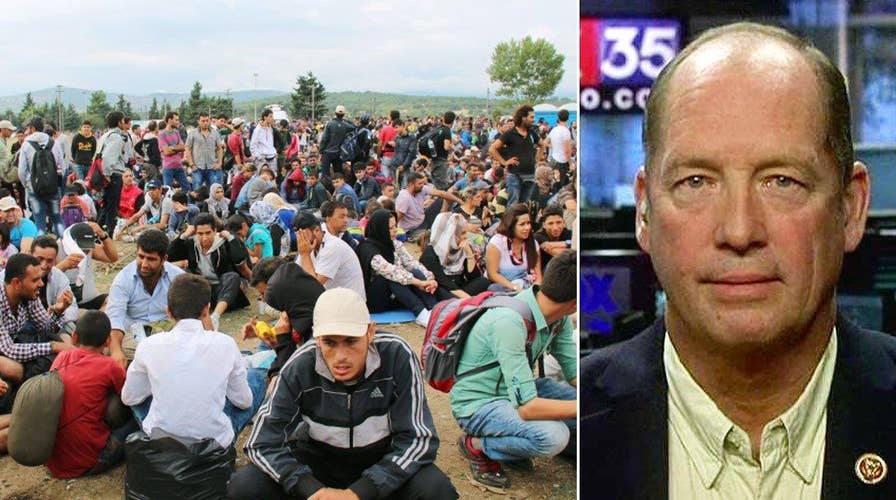Canada on Tuesday announced a scaled-back Syrian refugee plan that gives the highest priority to the “most vulnerable” and reportedly will exclude some unaccompanied males, amid concerns in the U.S. and elsewhere that Islamic State fighters could slip through the vetting systems.
The priority will go to families, at-risk women and members of the LGBT community. Single men will be granted admission only if accompanying their parents or if they are part of the LGBT community, according to several Canadian news agencies.
The possibility of Islamic State fighters entering the United States and other countries has been a growing concern since the terror group’s rise to power over roughly the past two years. Such fears reached a new level after the recent Paris terror attacks in which one of the suicide bombers apparently came
from Syria and entered France by foiling Europe’s refugee-vetting system.
Canadian officials, in announcing the plan at a press conference, also said the government would scale back its ambitious plan to accept 25,000 refugees from the war-torn country before January.
The new plan call for a mix of 10,000 government- and private-sponsored Syrian refugees by Dec. 31, then the remaining 15,000 by February 2016.
“We’re happy to take a little more time,” said Immigration Minister John McCallum. “Canadians have said, ‘Do this thing right. And if it takes a bit longer, then take the time.”
Officials also said the refugees will be fully screened before they enter Canada.
More than 4 million Syrians have fled their country since the conflict began in 2011.
"Everyone agrees that Canada must do more and must welcome 25,000 refugees," newly elected Prime Minister Justin Trudeau said late Monday, after getting unanimous support from the country’s 10 provincial premiers, which are similar to U.S. governors.
Whether the Canadian plan to focus on families might represent a middle ground for U.S. lawmakers still battling over the refugee program remains to be seen.
There is a growing gap between the White House and Congress on the issue -- the House voted last week to strengthen refugee vetting, while President Obama on Tuesday stood by the current plan to bring in 10,000 Syrian refugees next year.
Obama said after the Nov. 13 Paris attacks that killed 130 people, and for which the Islamic State has taken responsibility, that the U.S. would not change its vetting process or its plan.
His decision was followed by more than half the country's governors, including one Democrat, saying they wouldn’t accept Syrian refugees and 37 House Democrats helping pass the Republican-sponsored bill calling for tighter screening.
Post-Paris opinion polls show Americans divided on the issue as well.
A Fox News poll released Sunday showed 67 percent of those surveyed oppose the president’s plan to take in at least 10,000 more Syrian refugees through next year. And 49 percent said it was “very likely” that at least one person coming into the country through the process would be a terrorist who will succeed in carrying out an attack on U.S. soil.
On Monday, the Federal Law Enforcement Officers Association denounced the Obama administration plan.
“The truth of the matter is there is no effective means or magical litmus test to assess prospective terrorists hidden among the throngs of refugees applying for entry into the United States,” said group President Nathan Catura. “The men and
women in federal law enforcement are not dispassionate towards those seeking to escape persecution. However, our compassion is first for Americans.”
Former Conservative Canadian Prime Minister Stephen Harper, who lost the Oct. 19 election to Trudeau, had declined to resettle more Syrian refugees.
Trudeau has recently said robust security screening continues to be a high priority.
Canada has long prided itself on opening its doors wider than any nation to asylum seekers. In times of crisis in decades past, Canada resettled refugees quickly and in large numbers. It airlifted more than 5,000 people from Kosovo in the late 1990s, more than 5,000 from Uganda in 1972 and resettled 60,000 Vietnamese in 1979-80. More than 1.2 million refugees have arrived in Canada since World War II.
The CBC also reports that as many as 900 refugees are expected to arrive daily to Canada from Turkey, Jordan and Lebanon, at a cost of $876.7 million for this first year alone.
The Associated Press contributed to this report.












































